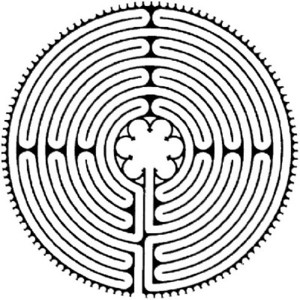I really don’t have much to say today. This is fine because it gives me the chance to point out a couple of posts written by Wendy over at the Bridging the Gap blog. The first post is where she gives a brief summary and a few thoughtst about about the GSCR. As I’ve blogged a bit about my own experiences at the retreat, I thought some readers might be able to hear someone else’s thoughts. I particularly liked the sampling of quotes Wendy included from various attendees toward the bottom of her post.
The other post I want to draw readers’ attention to is one in which Wendy talks about a video showing a discussion between Rob Bell and Andrew Wilson in which the topic of the morality of same sex sexual relationships comes up. Wendy offers her thoughts on how she might have responded to Wilson’s comments and questions, had she been in Bell’s position. Her detailed and thoughtful analysis of some of the underlying questions — questions that don’t always have to do with human sexuality no less — that must be answered, as their answers will greatly influence how someone approaches the whole topic.
Wendy, being who she is, ties it back to Generous Spaciousness:
My point is not to argue for Rob Bell’s position. My point is that there are robust theological reflections that help us to understand why we can come to such different perspectives on matters such as our theology and ethics of sexuality. My point is to try to demonstrate that generous spaciousness is not some weak, compromise that is simply motivated by keeping up with culture and trying to make God relevant in a gay-positive context. Rather, generous spaciousness costs us our pride, it costs us the luxury of arrogant certainty. Generous spaciousness costs us our security in our exegesis, our hermeneutics, our interpretations. (especially when such exegesis and hermeneutics result in prohibitions for others that do not personally affect ourselves) Generous spaciousness forces us to find our security in the wild, untamable revealing of Jesus Christ to us through the Holy Spirit, through the Scriptures, through tradition (including contemporary tradition), through the academic disciplines, and through our experiences. And the truth is that this revelation is not in our control – it is in God’s control. This demands our humility, our openness, our fearlessness, our willing to risk following – even when it seems God is doing a new thing.
I absolutely love it when Wendy — or anyone else — talks about humility and then goes on to practice it. I find her willingness to let go of determining what is right for someone else’s life and leave that in God’s hands refreshing and powerful. I also think it takes no small amount of faith, personally.
If you haven’t done so already, go read Wendy’s posts. The whole blog, if you have the time.

